Knowledge Sharing Resources
The following books represent a selection of readings related predominantly to project management that have been suggested resources for those attending APPEL Masters Forums.
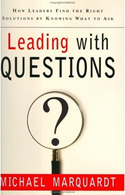 |
Leading with QuestionsAuthor: Michael J. Marquardt An internationally acclaimed management consultant shows how you can learn to ask the powerful questions that will generate short-term results and long-term learning and success. Effective leaders use questions to encourage participation and teamwork, foster outside-the-box thinking, empower others, build relationships with customers, and solve problems. |
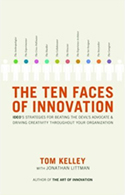 |
The Ten Faces of InnovationAuthors: Thomas Kelley, Jonathan Littman Filled with engaging stories of how companies such as Kraft, Samsung, and Procter & Gamble have incorporated IDEO’s thinking to transform the customer experience, The Ten Faces of Innovation is an extraordinary guide to nurturing and sustaining a culture of continuous innovation and renewal. |
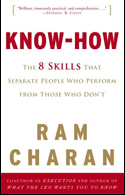 |
Know-How: The 8 Skills that Separate People Who Perform from Those Who Don’tAuthor: Ram Charan How often have you heard someone with a commanding presence deliver a bold vision that turned out to be nothing more than rhetoric and hot air? All too often we mistake the appearance of leadership for the real deal. Without a doubt, intelligence, vision, and the ability to communicate are important. |
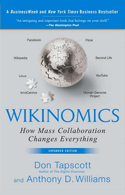 |
Wikinomics: How Mass Collaboration Changes EverythingAuthors: Don Tapscott, Anthony D. Williams While some leaders fear the heaving growth of these massive online communities, Wikinomics proves this fear is folly. Smart firms can harness collective capability and genius to spur innovation, growth, and success. |
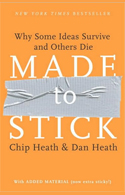 |
Made to Stick: Why Some Ideas Survive and Others DieAuthors:Chip Heath, Dan Heath A fast-paced tour of success stories (and failures) — a Nobel Prize-winning scientist who drank a glass of bacteria to prove a point about stomach ulcers, the charities who make use of “the Mother Teresa Effect,” the elementary-school teacher whose simulation actually prevented racial prejudice. |
 |
Korolev: How One Man Masterminded the Soviet Drive to Beat America to the MoonAuthor: James J. Hartford A mysterious, virtually unknown figure, Sergei Pavlovich Korolev masterminded the historic launch of Sputnik and the first intercontinental ballistic missile, Yuri Gagarin’s epochal space flight, and, ultimately, the Soviet attempt to beat America to the moon. Who was Korolev? Where did he come from? Why is so little known about him? |
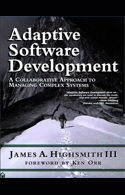 |
Adaptive Software Development, A Collaborative Approach To Managing Complex SystemsAuthors: James A. Highsmith III, Ken Orr To survive in today’s turbulent e-business world, software project teams must exhibit adaptability, speed, and collaboration. Adaptive Software Development is targeted at software teams where competition creates extreme pressure on the delivery process. |
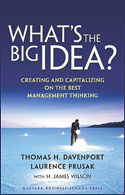 |
What’s The Big Idea? Creating and Capitalizing on The Best Management ThinkingAuthors: Thomas H. Davenport, et al New management ideas are thrown at today’s companies with increasing frequency, and each comes with evangelizing, eager-to-assist implementation consultants. Choose the right idea at the right time and your company can be more efficient, more effective, more innovative. Choose the wrong one and you could fall hopelessly behind. |
 |
Sources of Power: How People Make DecisionsAuthor: Gary Klein Most studies of decision making, based on artificial tasks assigned in laboratory settings, view people as biased and unskilled. Gary Klein is one of the developers of the naturalistic decision making approach, which views people as inherently skilled and experienced and documents human strengths and capabilities that so far have been downplayed or ignored. |
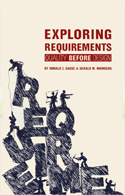 |
Exploring Requirements: Quality Before DesignAuthors: Donald C. Gause, Gerald M. Weinberg Finally, here’s an innovative book that gives you the understanding you need to give people the solutions they want. The collaborative team of Gause and Weinberg tells how you can ensure the requirements are right before the product is designed. |
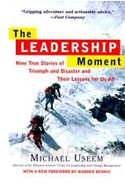 |
The Leadership MomentAuthors: Michael Useem, Warren G. Bennis (Introduction) Poignant real-life examples of people facing their “moments of truth” — when push truly comes to shove, regardless of the setting — teach us how best to perform under the pressures of the modern business world. |
 |
The Story Factor: Inspiration, Influence, and Persuasion Through the Art of StorytellingAuthor: Annette Simmons The next business revolution — using the power of stories as the ultimate source of influence and impact. Simmons argues that storytelling may just be the best management tool available to modern business leaders because it exerts influence in ways that other techniques cannot. |
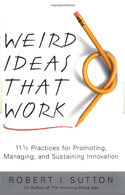 |
Weird Ideas That Work: 11½ Practices for Promoting, Managing, and Sustaining InnovationAuthor: Robert I. Sutton Creativity, new ideas, innovation — in any age they are keys to success, but in today’s whirlwind economy they are essential for survival itself. Yet, as Robert Sutton explains, the standard rules of business behavior and management are precisely the opposite of what it takes to build an innovative company. |
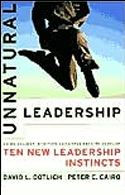 |
Unnatural LeadershipAuthors: David L. Dotlich, Peter C. Cairo Unnatural Leadership debunks the common notion of the natural leader as a flawless figure. The book describes the truth about being a real leader in a business environment turned upside down by e-commerce, diversity, security concerns, globalization, and matrix structures. |
 |
The Deadline: A Novel About Project ManagementAuthor: Tom Demarco From prolific and influential consultant and author Tom DeMarco comes a project management novel that vividly illustrates the principles for team-based project management. |
 |
Work 2.0: Rewriting the ContractAuthor: Bill Jensen In the coming war for talent-leaders who don’t dedicate themselves to creating a people-oriented work environment, who don’t understand the importance of intangible assets, may find themselves saddled with less productive employees, a less energetic corporate culture, and, ultimately, a less profitable business. |
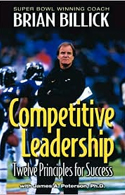 |
Competitive Leadership: Twelve Principles for SuccessAuthors: Brian Billick, James A., Ph.D. Peterson, Andrea Kremer Brian Billick shares 12 personal principles for building effective leadership skills — skills that took him to the top in football and that can lift you to the top in any situation. Billick explains how to use these principles to become an effective leader at all times, rather than a perfect leader in isolated situations. |
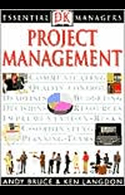 |
Essential Managers: Project ManagementAuthors: A. Bruce, K. Langdon From setting out objectives to compiling the close-down report, from choosing priorities to selecting the right team, Project Management shows you how to plan, run, and monitor a project, and explains what to do if things go wrong. |
 |
Six Thinking HatsAuthor: Edward De Bono Using case studies and real-life examples of his “six thinking hats,” de Bono shows how each of us can become a better thinker through deliberate role-playing. |
 |
Managing the Dream: Reflections on Leadership and ChangeAuthor: Warren G. Bennis A surprising, thought-provoking, powerful collection, the best essays from Warren Bennis, the world’s preeminent writer on leadership. Warren Bennis has become synonymous with leadership, exploring all its dimensions as both practitioner and scholar for over four decades. |
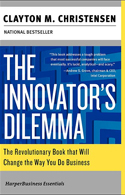 |
The Innovator’s DilemmaAuthor: Clayton M. Christensen In this revolutionary bestseller, Harvard professor Clayton M. Christensen says outstanding companies can do everything right and still lose their market leadership, or worse, disappear completely. He not only proves what he says, but he tells others how to avoid a similar fate. |
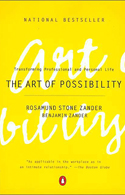 |
The Art of PossibilityAuthors: Rosamund Stone Zander, Benjamin Zander The authors offer a set of breakthrough practices for creativity in all human enterprises. The book joins Ben’s extraordinary talent as a mover and shaker, teacher, and communicator, with Rosamund’s genius for creating innovative paradigms for personal and professional fulfillment. |
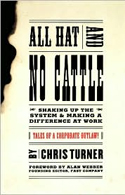 |
All Hat And No Cattle: Tales of a Corporate OutlawAuthor: Chris Turner, Alan Webber With a healthy dose of Texas humor, and with wisdom gained from experience on the front lines, she exposes much of what passes for management wisdom as baloney and offers fresh ways of thinking about organizations and the people who bring them to life. |
 |
The Hungry Spirit: Beyond Capitalism: A Quest For Purpose in the Modern WorldAuthor: Charles Handy In The Hungry Spirit, one of the most visionary business thinkers of our age offers a powerful argument for reexamining the role of work in our lives and discovering what we are truly meant to do and to be. |
 |
The Social Life of InformationAuthors: John Seely Brown, Paul Duguid The authors dispel the futurists’ predictions that information technology will obliterate the need for everything from travel to supermarkets to business organizations to social life itself. Beaten down by info-glut, exasperated by computer crashes, burned by dot-com stocks, individuals find it hard to grasp the true potential of the digital revolution. |
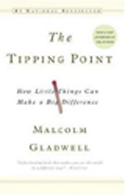 |
The Tipping Point: How Little Things Can Make a Big DifferenceAuthor: Malcolm Gladwell According to Gladwell, the “tipping point” is that magic moment when an idea, trend, or social behavior crosses a threshold, tips, and spreads like wildfire. A small but precisely targeted push can start a fashion trend or cause the popularity of a new restaurant to take off overnight or cause crime or drug use to taper off. |
 |
Conversation: How Talk Can Change Our LivesAuthor: Theodore Zeldin Conversation explains what kind of talk charmed and excited people in the past and why we talk differently today. It explores the art and the history of conversation and how it can be the key to a happier, more interesting future. |
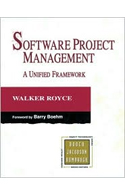 |
Software Project Management : A Unified FrameworkAuthor: Walker Royce Royce presents a new management framework uniquely suited to the complexities of modern software development. His pragmatic perspective exposes the shortcomings of many well-accepted management priorities. |
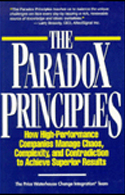 |
The Paradox PrinciplesAuthor: Price Waterhouse Change Integration Team Explains how high-performance companies manage chaos, complexity, and contradiction to achieve superior results. It shows managers how to face conflicts and use paradox as a dynamic tool to achieve balance, sharpen focus, and drive performance. |
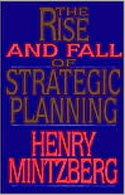 |
The Rise and Fall of Strategic PlanningAuthor: Henry Mintzberg The iconoclastic former president of the Strategic Management Society unmasks strategic planning &mdash the approach that has mesmerized organizations since 1965. Mintzberg concludes that the term is an oxymoron — that strategy cannot be planned because planning is about analysis and strategy is about synthesis. |
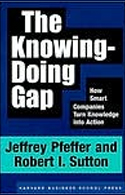 |
The Knowing-Doing Gap: How Smart Companies Turn Knowledge into ActionAuthors: Jeffrey Pfeffer, Robert I. Sutton Pfeffer and Sutton identify the causes of the “knowing-doing” gap and explain how to close it. They assert that firms that turn knowledge into action avoid the “smart talk trap.” Companies that act on their knowledge eliminate fear, abolish destructive internal competition, measure what matters, and promote the right leaders. |
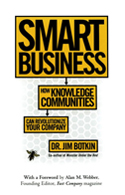 |
Smart Business: How Knowledge Communities Can Revolutionize Your CompanyAuthor: Jim W. Botkin The first knowledge-age book to give practical advice on how to organize and make use of knowledge — how to turn knowledge into wisdom. Botkin argues that we must build “knowledge communities” — groups of people with a shared passion to create, use, and share new knowledge for tangible business purposes. |
 |
Simultaneous Management: Managing Projects in a Dynamic EnvironmentAuthor: Alexander Laufer Laufer blends classic project management theory with the experiences of successful practitioners in the real world. This revolutionary but highly practical book provides today’s project managers with the tools and confidence to deal with the conflicting demands and uncertainties that so often arise to undermine the most well thought-out plan. |
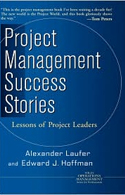 |
Project Management Success Stories: Lessons of Project LeadershipAuthors: Alexander Laufer, Edward J. Hoffman These stories begin where most books on project management leave off — with real-world experiences of professional project managers. From these stories and the lessons they teach, project managers emerge as champions who challenge the status quo, set goals that extend the limits of their teams’ capabilities, rely more on judgment and intuition, and are unafraid to take appropriate risks. |
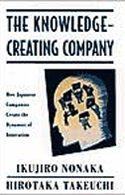 |
The Knowledge-Creating Company: How Japanese Companies Create the Dynamics of InnovationAuthors: Ikujiro Nonaka, Hirotaka Takeuchi, Hiro Takeuchi The authors provide an inside look at how Japanese companies create new knowledge organizationally. They discuss two types of knowledge — explicit knowledge, contained in manuals and procedures, and tacit knowledge, learned by experience and communicated indirectly through metaphor and analogy. U.S. managers focus on explicit knowledge; Japanese managers focus on tacit knowledge. |
 |
Rewiring the Corporate Brain: Using the New Science to Rethink How We Structure and Lead OrganizationsAuthor: Danah Zohar Rewiring the Corporate Brain offers a new conceptual structure for a fundamental transformation in corporate thinking and leadership, along with suggestions for practical, structural implementation. It makes new paradigm scientific thinking accessible, practical and inspiring to business readers. |





